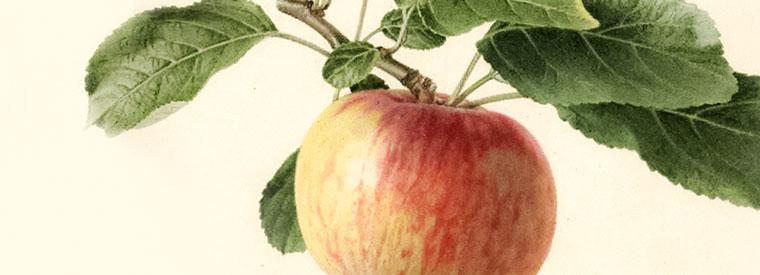"Humanity will be renewed in the Orchard, and the Orchard will restore it."

Fruit
KING DAVID is speculated to be either a cross of Jonathan and Arkansas Black, or a cross of Jonathan and Winesap, that was found in a fence row on the farm of Ben Frost in Durham, Washington County, Arkansas, in 1893. Stark Brothers Nursery of Missouri introduced it in 1902. A solid deep red, but sometimes a pale green overlaid with deep dark red, it is subacid and slightly sweet in flavor. The vigorous growing tree is spreading and tends to be very bushy, and there seems to be some resistance to the major apple diseases. The bark is a reddish-olive color, and the dull, coarse leaves have sharp serrations. Fruits hang on the tree long after ripening, and the red color will brighten. For the highest flavor, it should be harvested when fully-colored on the tree. Fruit allowed to become overripe on the tree will watercore. For heavy production, good pollination is necessary. It is suitable for dessert, pie and sauce making, as well as cider. The cooked fruit is a rich, yellow color. King David ripens in October.
King David is self-sterile, and will need at least two other varieties planted nearby for pollination success. King David flowers in late midseason (C) in Virginia.
Ripening Period
- Mid Fall - October


